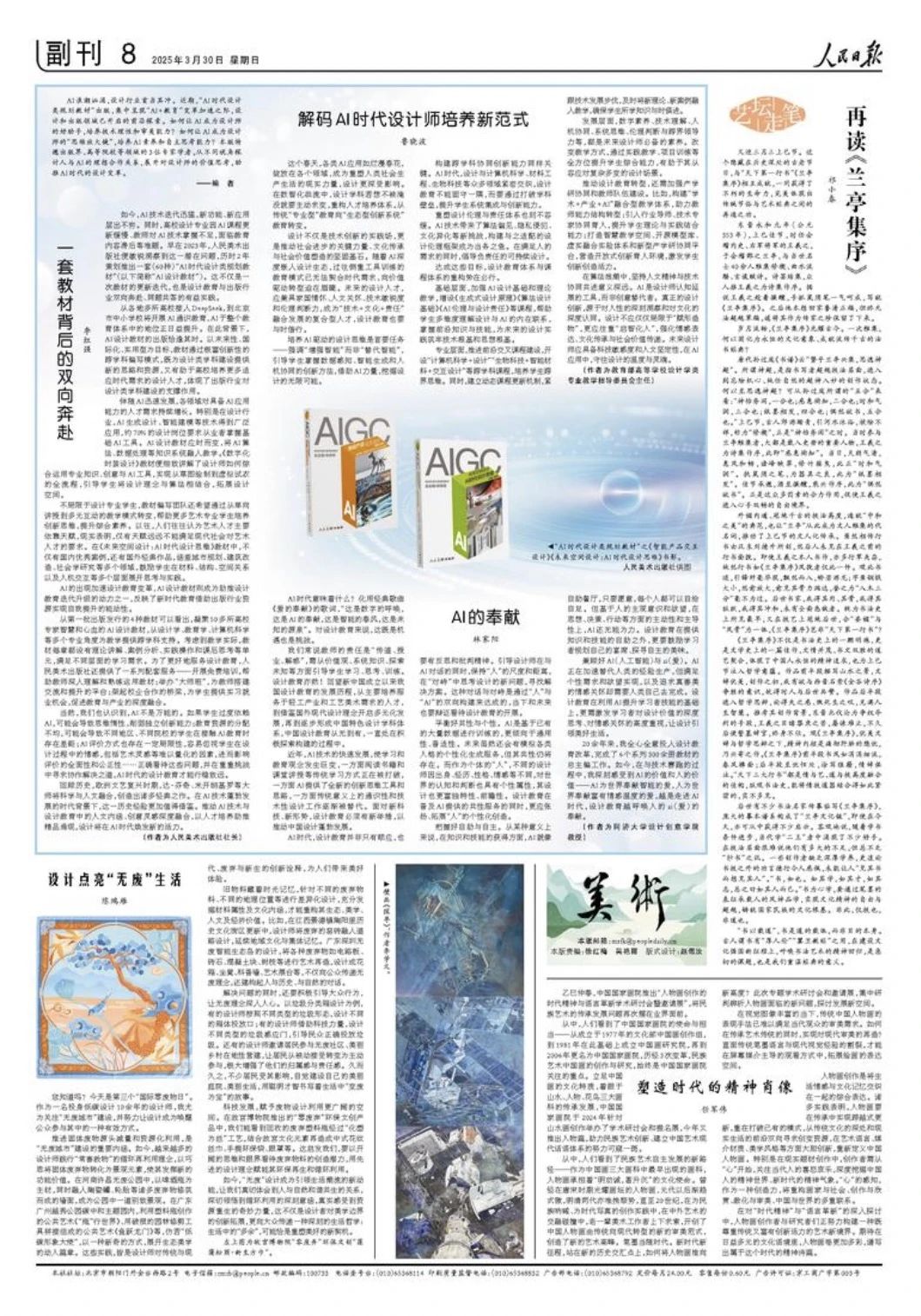
This spring, AI applications have bloomed like vibrant flowers across diverse fields, emerging as transformative forces reshaping human productivity and lifestyles. Design, in particular, faces profound impacts. To avoid being overwhelmed by the digital-intelligent transformation, design disciplines must proactively evolve, reconstructing talent development systems to shift from traditional "specialized" education to an "ecosystem-based innovative system" model.
Design is not merely a testing ground for technological innovation but a pivotal driver of social progress, cultural preservation, and the reinforcement of societal values. As AI becomes deeply embedded in the design ecosystem, the conventional education model focused on tool proficiency no longer meets contemporary demands. A value-driven transformation is imperative. Future design professionals must integrate national consciousness, humanistic empathy, technological acuity, and ethical discernment, evolving into multidisciplinary talents who harmonize "technology + culture + responsibility." Design education, too, must advance with the times.
Cultivating AI-Driven Design Thinking stands as the primary task. Emphasizing "Augmented Intelligence" over "Artificial Intelligence Replacement," educators must guide students to master innovative methodologies in data perception, intelligent generation, and human-machine collaboration. By leveraging AI’s potential, designers can unlock infinite creative possibilities.
Building Cross-Disciplinary Collaborative Innovation Capabilities is equally critical. In the AI era, design intersects with computer science, materials engineering, biotechnology, and beyond. Design education must transcend disciplinary silos, fostering students’ systemic integration and innovation capacities through interdisciplinary convergence.
Reconstructing Design Ethics and Accountability Frameworks is urgent. AI technologies introduce challenges like algorithmic bias, privacy violations, and cultural homogenization. Establishing ethics-compatible design frameworks is essential to advocate responsible, sustainable design while addressing human needs.
To achieve these goals, comprehensive reforms in design education and curricula are imperative.
At the foundational level, strengthen AI design theory and technical training. Introduce courses such as Generative Design Principles, Algorithmic Design Fundamentals, and AI Ethics & Design Responsibility to equip students with multidimensional understanding of AI-design dynamics, cutting-edge knowledge, and technical-philosophical grounding.
At the professional level, advance frontier interdisciplinary curricula. Develop cross-domain courses like "Computer Science + Design" and "Biotechnology + Smart Materials + Interaction Design" to cultivate boundary-spanning thinking. Implement dynamic curriculum updates to incorporate emerging theories and case studies, ensuring alignment with technological evolution.
At the developmental level, nurture core competencies including digital literacy, technological fluency, human-AI collaboration, systems thinking, ethical judgment, and cross-disciplinary leadership. Revamp pedagogical approaches through project-based learning and practical training to prepare students for complex design challenges.
Educational transformation further requires enhanced industry-academia collaboration and faculty development. For instance:
·Build an integrated "Academia + Industry + AI" teaching ecosystem to empower educators’ competency upgrades.
·Engage industry mentors and technical experts in co-teaching to bridge theory-practice gaps.
·Establish smart learning environments, open-source model libraries, virtual-physical labs, and innovation platforms to foster open, creativity-driven ecosystems.
Amid algorithmic disruption, harmonizing humanistic values with technological progress remains vital. AI serves as a cognitive extension for designers, not a creative replacement. Authentic innovation stems from profound human insight and cultural resonance. Design must transcend "form-giving" to prioritize "enlightenment and humanization," amplifying emotional expression, cultural continuity, and social value transmission. Future designers must balance technological sensitivity with humanistic conviction, preserving design’s warmth and soul in AI applications.
Author: Lu Xiaobo, Senior Professor of Humanities and Social Sciences at Tsinghua University; Director of the Design Discipline Teaching Steering Committee under China’s Ministry of Education.
Source: Adapted from the People’s Daily Culture WeChat official account.

